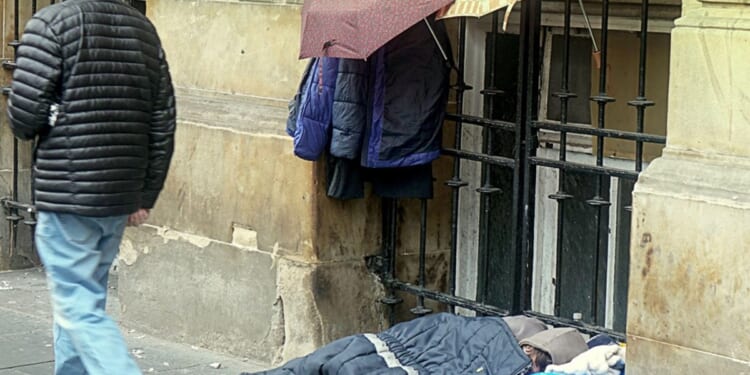YOUNG people are more likely to be hopeful than those of previous generations that an end to global poverty is possible, a study has found.
A survey of UK adults suggests that more than half — 54 per cent — of under 34-year-olds are optimistic about achieving an end to poverty. This optimism is shared by just 27 per cent of over-55-year-olds.
Their optimism is backed by progress over the past few decades. Figures from the World Bank show that levels of extreme poverty have declined dramatically in the past 40 years. In the 1980s, about 40 per cent of the world’s population lived in extreme poverty, compared with about nine per cent today. Slower progress in recent years has been attributed to international development funding cuts and the impact of climate change on already fragile communities. Extreme poverty is defined by the UN as living on less than $3 a day.
The poll of 2128 adults was carried out by Savanta for the children’s charity Compassion UK. It found a drop in the overall numbers of adults believing that it was possible to end poverty: from 48 per cent last year, to 41 per cent this year.
Justin Dowds, Compassion UK’s chief executive, said that it was possible to eradicate extreme poverty in the next 40 years. “We believe, and the next generation believes, that a world without poverty is possible,” he said.
“I have seen extreme poverty dramatically reduce in my lifetime, but, sadly, that rate of decline is slowing. We are seeing extreme poverty increasingly concentrated in sub-Saharan Africa and in fragile, conflict-affected regions, where climate-related impacts disproportionately affect the poor.”
An estimated 412 million children were still living in extreme poverty and surviving on less than $3 a day, he said. Two thirds of the world’s poorest live in sub-Saharan Africa.
Compassion UK carried out a separate survey of 387 young people who had benefited from its work in Uganda, which has one of the world’s fastest-growing national populations. There, 91 per cent of young people said that they believed that the eradication of extreme poverty was possible.
Izzy Madavan, presenter of The Way UK, the largest digital youth ministry in Europe, has visited projects in Uganda with Compassion UK. She said: “Young people are working with the local Church to break the cycle of poverty for the families and communities.
“While there, I met families, including the brothers my mum and I sponsor, and saw how each child was truly known and cared for in their individual needs. I also met programme graduates whose lives, and the lives of their future generations, have been transformed by being lifted out of poverty.
“I believe it’s down to people of my generation to tackle extreme poverty so that there will be a future free from its devastating effects. I’ve witnessed this in a small way in Uganda, and I’m confident it can be done elsewhere.”

















